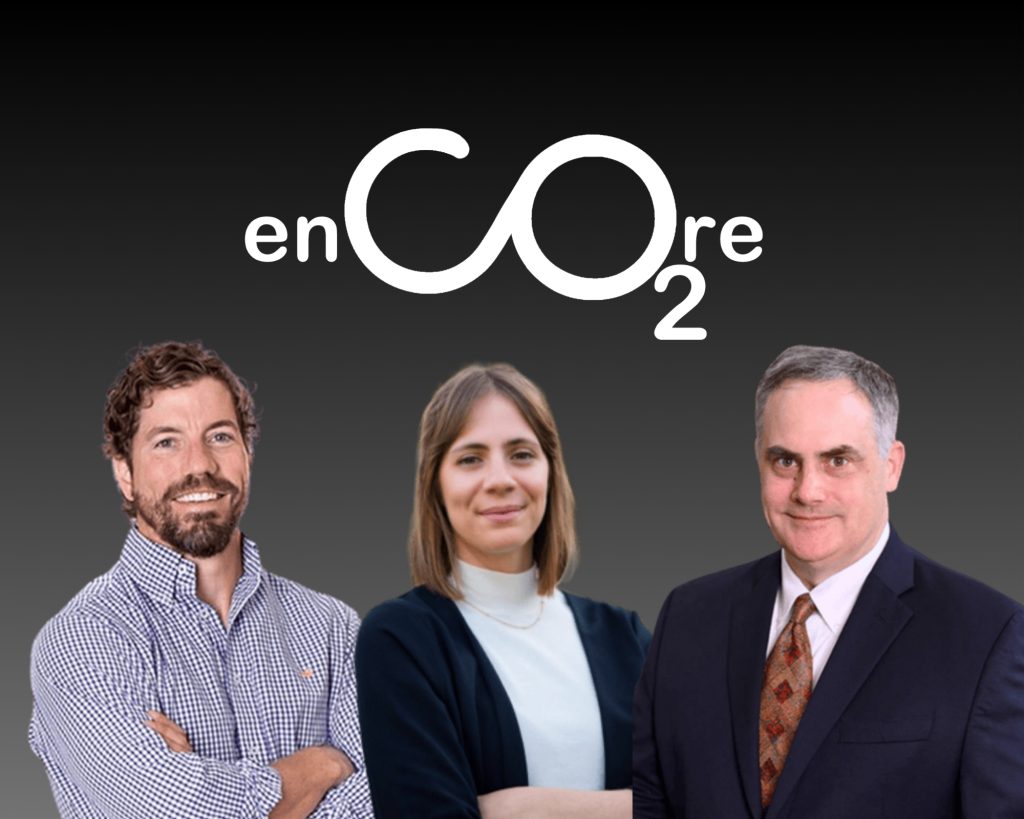Packing a punch on both environmental and economic fronts, Encore CO2 is commercializing technology that recycles carbon dioxide (CO2) emissions into valuable new products.
Based in Baton Rouge, Louisiana, Encore CO2 traces its origins to 2022 when serial entrepreneur William McGehee met John Flake, a chemical engineering professor, while working out at a local gym. At the time, McGehee was operating a craft brewery, and Flake was looking for partners to commercialize a technology he had developed at Louisiana State University (LSU). The duo quickly discovered common ground beyond Iron Tribe fitness classes: McGehee’s Tin Roof Brewing Co. used ethanol to make beer, which emitted CO2, and Flake’s technology converted CO2 emissions back into ethanol.
Fast forward to today: Encore CO2 has moved from the lab to proof-of-concept stage and expects to debut its first product this summer — the world’s first hard seltzer made from electrolytic ethanol. The young company has received considerable recognition, including:
- A $275,000 Small Business Innovation Research (SBIR) grant from the National Science Foundation.
- A $200,000 grant from LSU’s Future Use of Energy in Louisiana (FUEL) initiative, along with a $50,000 prize from a FUEL pitch competition.
- One of nine startups (and the only one from Louisiana) to be selected as a partner for Newlab’s applied innovation program, funded through an Energy Program for Innovation (EPIC) grant.
“Because of my brewing company, it made sense to do our proof of concept with ethanol and hard seltzer, but ultimately we’re aiming for higher-value industrial products,” McGehee explains. Indeed, in addition to ethanol, Encore CO2’s technology can produce ethylene and acetate (vinegar). These products could be used to make hundreds of low or negative carbon intensity products, ranging from plastics to food and medicine. With that in mind, Jordan Losavio, a chemical engineer and former student of Flake’s, has joined the Encore CO2 leadership team bringing expertise in nutrition and food science.
In contrast to other conversion technologies, Encore CO2 offers greater efficiencies, uses less energy and doesn’t require hydrogen, which saves money. “Our secret sauce is figuring out how to selectively tune catalysts and membranes in order to get as much of the desired product as we want,” McGehee says.
What’s more, Encore CO2’s real advantage comes into play with low-carbon intensity products made possible through electrolysis. Conventionally made products such as tennis shoes or sunglasses rely on high temperature reactions, generating up to 10 times more CO2 emissions than the weight of the product itself. With its technology, Encore CO2 can make the same products with net-zero or negative CO2 emissions.
The company’s initial commercial prototype is a refrigerator-sized unit capable of producing one liter of ethanol per day. The prototype will be housed in Tin Roof’s building and obtain its CO2 feedstock from the brewery’s emissions, using direct air capture technology. “One of the goals at this stage is to make the largest unit possible that is still efficient,” McGehee says. (Although McGehee closed Tin Roof last October to focus on EncoreCO2, the brewery will reopen soon — good news for Baton Rouge beer enthusiasts.)
With its flexible technology, Encore CO2 has a variety of applications it can pursue:
- Manufacture its own proprietary products, such as hard seltzer.
- Produce ethanol, ethylene and acetate for use in high-value products like polymers.
- “Conversion as a service,” meaning that Encore CO2 would install its electrolysis system in customers’ facilities and transform their emissions back into chemicals needed in the plant.
To narrow its business model and also identify potential customers and downstream partners, Encore CO2 is working with experts in the System for Integrated Growth,® part of the Innovation Cohort program held in partnership with Louisiana Economic Development (LED). Other aspects of the cohort program include in-person retreats and monthly roundtable sessions with other high-tech entrepreneurs. “It’s been a while since I’ve had a mentor, and I’d forgotten how powerful peer learning can be,” McGehee says.
“I don’t think entrepreneurs realize all of the resources that are available to them,” McGehee adds. “This program and the other assistance that LED is offering us will advance Encore CO2 tremendously — and put us in a great spot as we get ready to approach investors. Once we’re at scale, we envision factories across the state using our technology to create new products from emissions that otherwise would have been wasted.”
